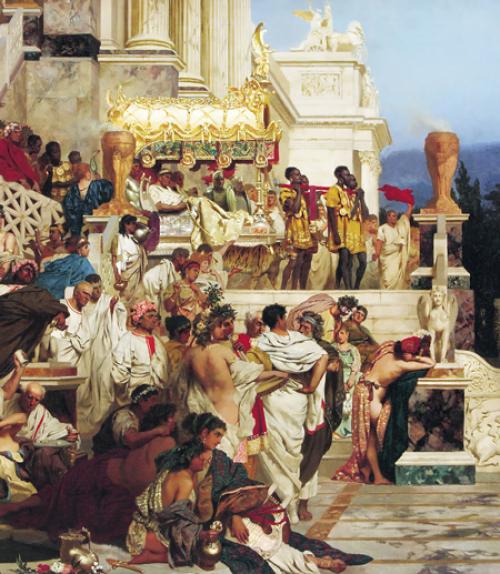
'Ten Caesars' offers lessons from history's great leaders
Stepping into the shoes of a god isn’t easy, as historian Barry Strauss makes clear in a new book that traces the biographies of 10 of the men who succeeded Julius Caesar.
 Department Homepage
The College of Arts & Sciences
Department Homepage
The College of Arts & Sciences

Stepping into the shoes of a god isn’t easy, as historian Barry Strauss makes clear in a new book that traces the biographies of 10 of the men who succeeded Julius Caesar.
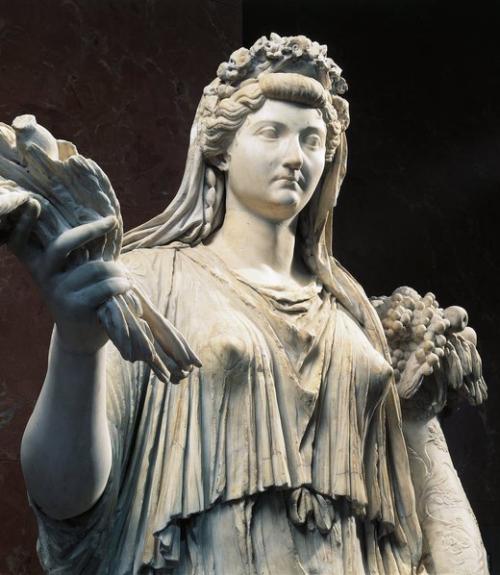
Barry Strauss, the Bryce and Edith M. Bowmar Professor in Humanistic Studies, wrote in this op-ed in Time that ancient Rome was a macho society, often misogynistic, where women did not enjoy equal citizen rights. But, he says, if we look hard at history, we discover some women who made their mark.
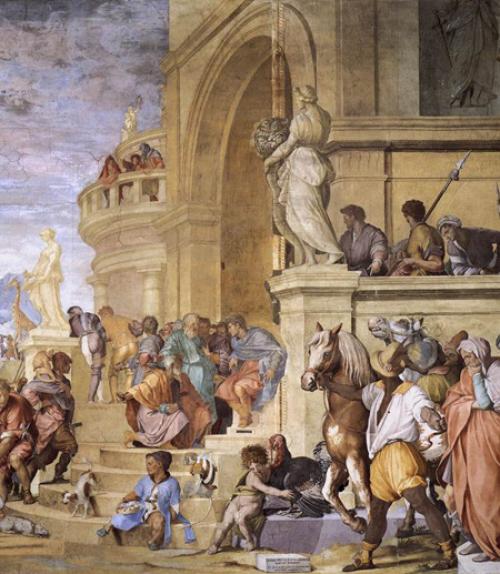
Barry Strauss, the Bryce and Edith M. Bowmar Professor in Humanistic Studies, writes in this Wall Street Journal essay, about the penchant for presidential hopefuls to pen the stories of their lives during election seasons.
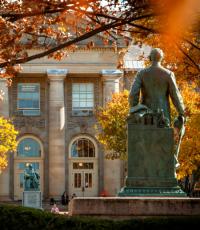
The Environment & Sustainability Program, home of the new cross-college undergraduate major in Environmental & Sustainability Sciences (ESS), is hosting a spring gathering of humanities faculty and current and prospective majors April 10 in Room 401 of the Physical Sciences Building from 4:30 to 5:30 p.m.
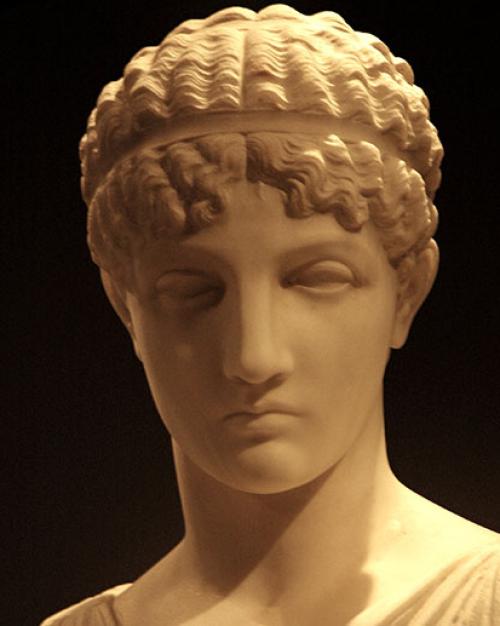
Ghosts, sacrifices, visions –Seneca’s ancient tale of the aftermath of the fall of Troy, “Troades” (“The Trojan Women”), is a Roman tragedy in the grand tradition. On April 21 and 24 Cornell classics students will stage the play in the original Latin (with English supertitles).
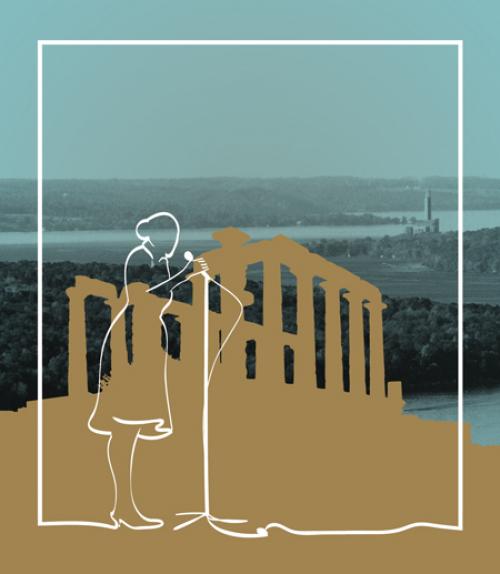
“Arts Unplugged,” a new series of events sponsored by the College of Arts and Sciences, will kick off April 26 with “The Odyssey in Ithaca,” a daylong community reading of a new translation of Homer’s “Odyssey” featuring campus and community members.
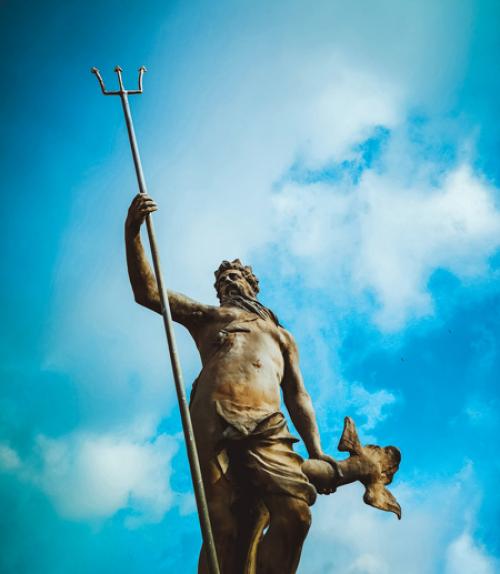
“A Water-Filled Journey,” the newest episode of the “What Makes Us Human” podcast, examines Odysseus’ complex relationship with water.
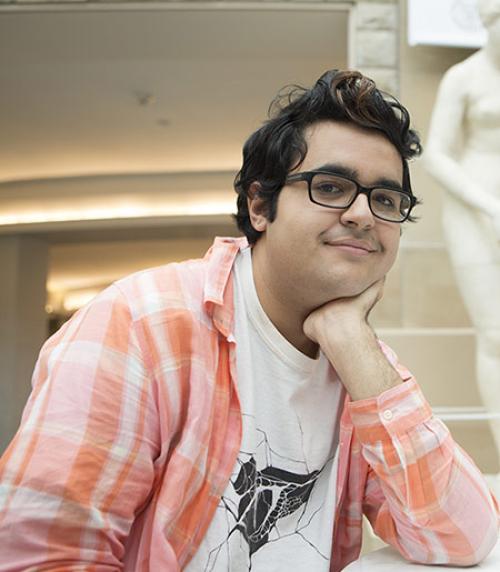

Classics scholar David Mankin, beloved by Cornell students for his inspiring and idiosyncratic teaching style, compassionate mentorship and the signature black sunglasses he wore to class, died April 24 after a brief illness. He was 61.
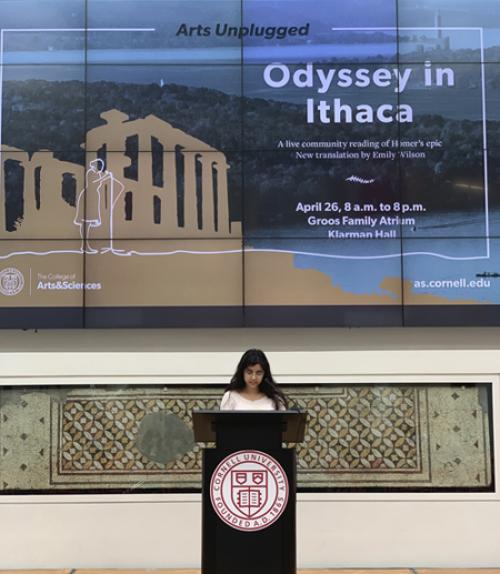
"Our cultural treasures are to be shared with everyone," said Alexa Saylan '22.
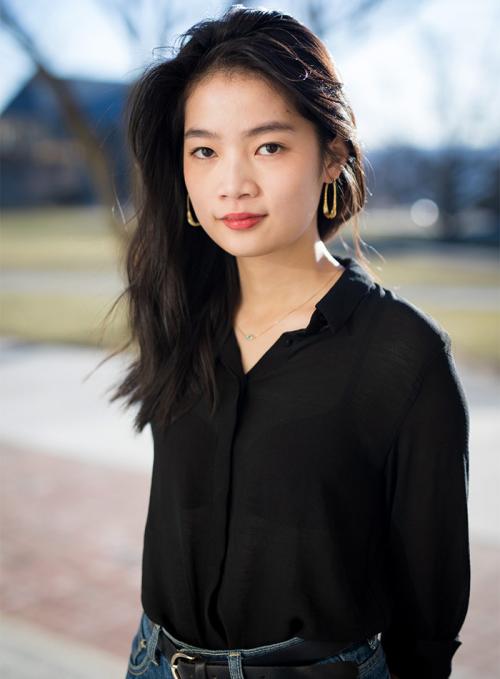
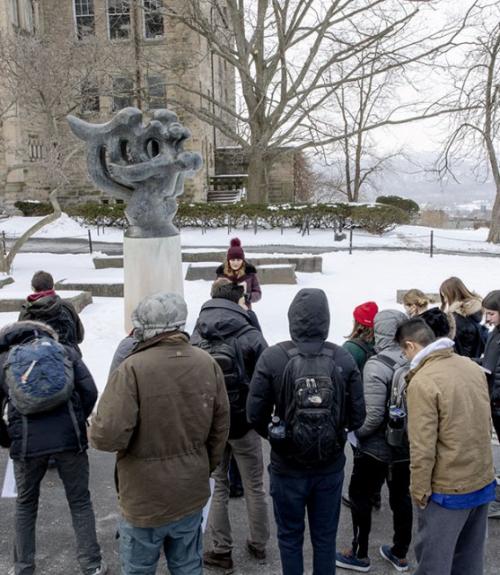
Active learning strategies transformed what could have been a class of slides and lectures this past semester into one in which students debated, created and thought critically about what statues mean, from antiquity to today.

Meredith Chagares ’19 began her senior thesis in history, literally, with a footnote – one that led her to do investigative work for “Anatomy of a Cover-Up: How and Why the United States Covered Up Japanese World War II Biological Warfare Experiments.”“I discovered about Japan’s experiments via a footnote while researching Nazi experiments,” she said.

The play, which featured an original musical composition by Ellie Cherry ’19, was sponsored by the Department of Classics in the College of Arts and Sciences and the Ancient Theater Performance Group of Cornell University.
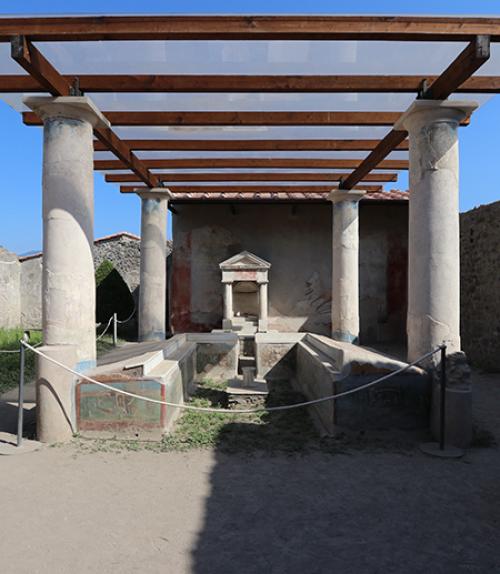
Photo right: Garden triclinium (outdoor dining benches) at the Casa dell’Efebo, a wealthy house in Pompeii. Paintings of Egyptian landscapes decorate the sides of the benches where people once reclined to dine, and an artificial canal once flowed between the benches. (Photo by Caitlín Barrett)
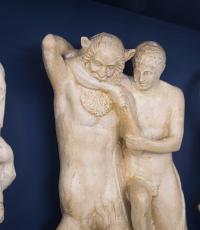
Looking at the two rows of miniature plaster casts now watching over diners in Klarman Hall’s Temple of Zeus, you’ll notice a few of the figures are missing. But never fear, art detective Annetta Alexandridis (also known as an associate professor of history of art and of classics) is on the case.
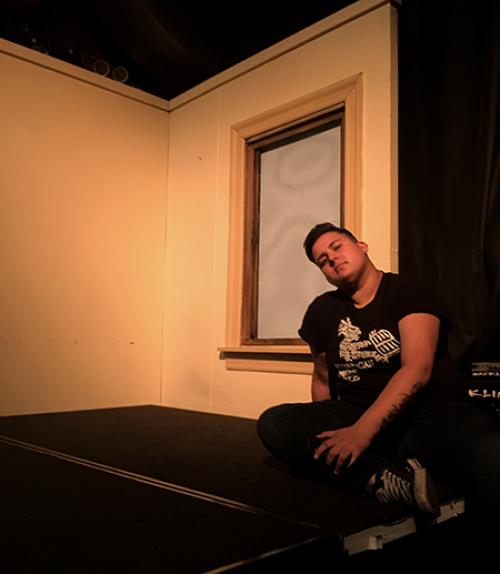
Students can use Summer Experience Grants to cover living and travel expenses when they take unpaid or minimally-paid positions.
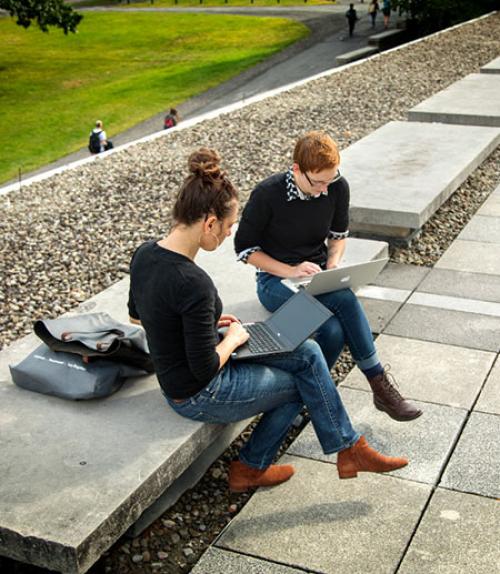
“We are recruiting the most promising emerging researchers from around the world."
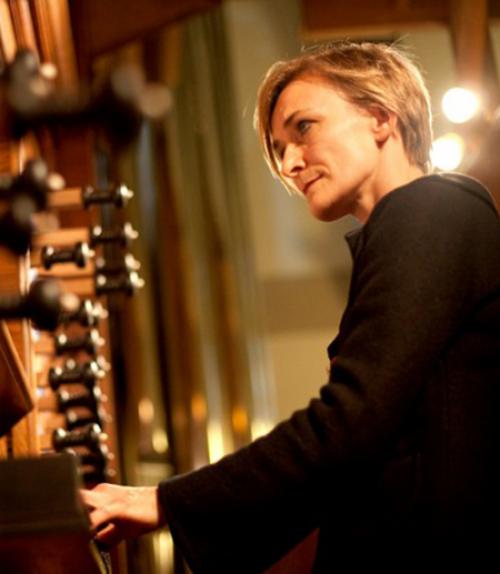
The Cornell Center for Historical Keyboards celebrated a new space for its instrument collection at 726 University Ave. with “New Meets Old: Collaborative Confrontations,” a festival Sept. 6-7, presented by the Department of Music in the College of Arts and Sciences.
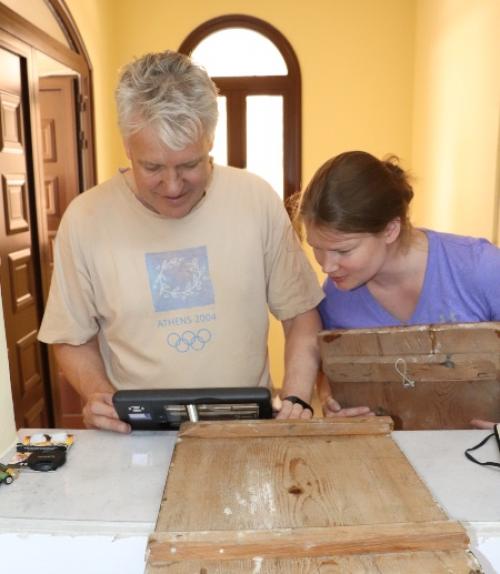
Cornell faculty and staff are the recipients of three National Endowment for the Humanities (NEH) grants totaling more than $300,000, to fund research and preservation projects.
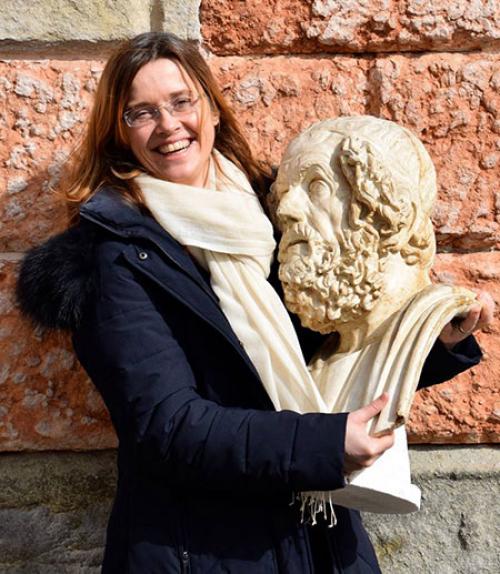
Princeton classics professor Barbara Graziosi will deliver the three-part Townsend Lectures on the theme of “Homecoming and Homemaking in the Ancient Mediterranean.” The lectures will begin at 4:30 p.m. in 165 McGraw Hall. The talks are free and the public is invited.

How do you trick a disciplined opponent with state-of-the-art equipment into entering a killing field? How do you turn an enemy’s strengths into his weaknesses? How do you get inside an enemy’s head?
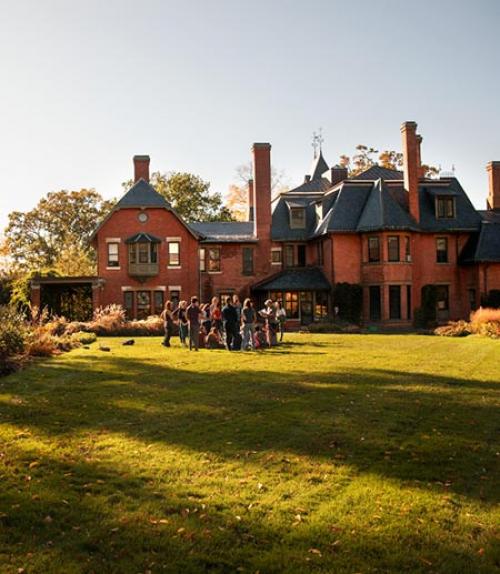
For the first time, undergraduates can be immersed in the work of Cornell’s Society for the Humanities.

On the brink of ecological collapse, how do we think, write and speak about the various forms of energy we encounter? The Society for the Humanities’ annual fall conference, Oct. 18 and 19, will examine the human relationship to energy in its myriad forms.
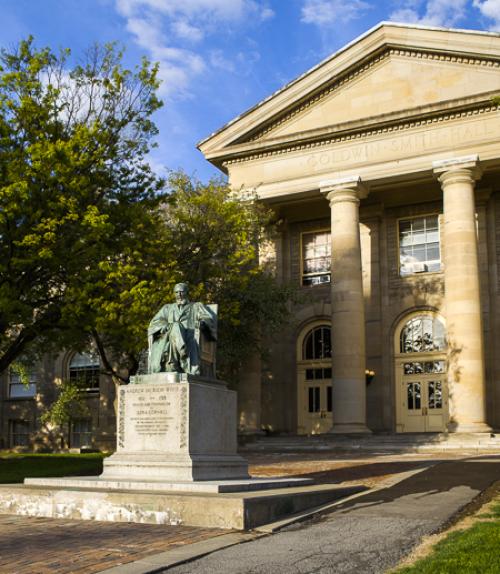
CIVIC (Critical Inquiry into Values, Imagination and Culture), the provost’s Radical Collaboration initiative focused on the humanities and the arts, is halfway toward its goal of 10 new faculty.